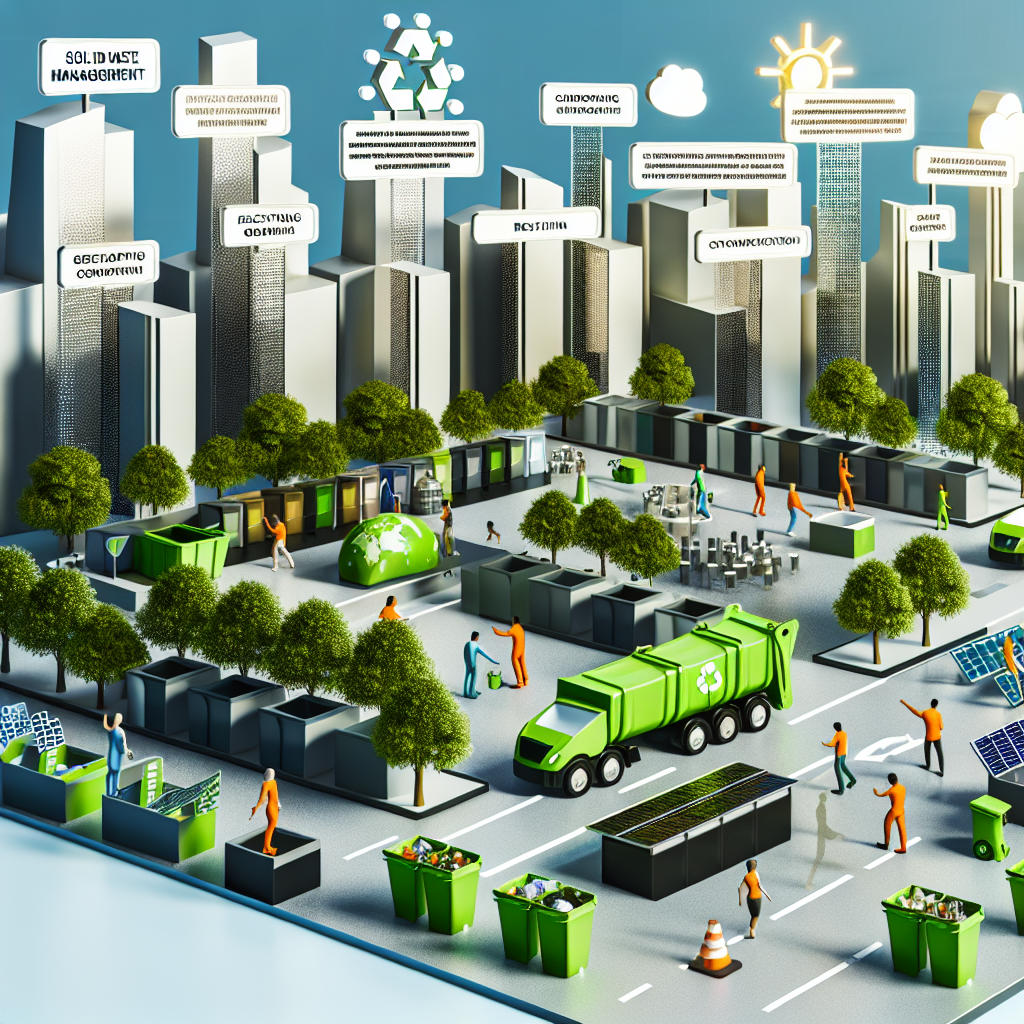Solid Waste Management of Society: Innovative Ideas
Solid waste management is one of the pressing environmental challenges facing our society today. With urbanization and increased consumerism, the amount of waste produced has skyrocketed. Traditional waste management methods are no longer sufficient, necessitating the exploration of innovative solutions. This article delves into groundbreaking ideas for effective solid waste management to help us build a sustainable future.
Introduction to Solid Waste Management
Effective solid waste management is crucial for maintaining a clean and sustainable environment. It involves the collection, transportation, processing, recycling, and disposal of waste materials. As we generate more waste, it becomes imperative to find innovative ways to manage it efficiently.
Innovative Ideas in Solid Waste Management
1. Zero Waste Communities
One of the most compelling strategies is developing zero-waste communities. These communities focus on reducing, reusing, and recycling waste to the maximum extent possible. Key practices include:
- Encouraging citizens to use reusable goods.
- Promoting community composting programs.
- Setting up swap shops and repair cafes to extend the life of household goods.
2. Advanced Recycling Technologies
Traditional recycling has its limitations, but advanced technologies are breaking new ground. These include:
- Plastic-to-fuel conversion: Transforming plastic waste into usable fuel.
- AI-powered recycling robots: Machines equipped with advanced sensors and artificial intelligence to sort recyclables more effectively.
- Biodegradable plastics: Development of plastics that decompose naturally, reducing landfill load.
3. Smart Waste Bins
Integrating technology into waste management can significantly enhance efficiency. Smart waste bins equipped with sensors can monitor waste levels and optimize pick-up schedules. Benefits include:
- Reduced fuel consumption: Optimization routes decrease the number of trips waste collection trucks make.
- Minimized overflowing bins: Real-time data can alert waste management services before bins overflow.
- Monitoring waste composition: Data analytics can help understand waste types, improving recycling rates.
4. Waste to Energy
Converting waste into energy is a game-changer. This process not only reduces waste but also generates power. Technologies such as anaerobic digestion and incineration can:
- Produce electricity and heat.
- Reduce reliance on fossil fuels.
- Minimize landfill usage.
5. Community-Based Initiatives
Empowering local communities to take charge of their waste can lead to significant improvements. Community-based initiatives can include:
- Organizing clean-up drives to keep neighborhoods clean.
- Educating citizens on waste segregation and recycling.
- Establishing local recycling centers and compost facilities.
6. Circular Economy
A circular economy aims to eliminate waste and continually use resources. By rethinking the life cycle of products, we can create a more sustainable system. Practices include:
- Designing products for longevity and recyclability.
- Implementing take-back programs where manufacturers reclaim products at the end of their lifecycle.
- Promoting sharing economy models like car-sharing and tool libraries.
The Role of Policy and Regulations
Government policies and regulations play a pivotal role in solid waste management. Comprehensive guidelines and laws can significantly influence waste reduction and recycling efforts. Crucial policies include:
- Extended Producer Responsibility (EPR): Mandating manufacturers to manage the disposal of their products.
- Landfill taxes: Financial penalties for excessive landfill use encourage waste reduction and recycling.
- Ban on single-use plastics: Reducing plastic waste by prohibiting single-use items.
The Importance of Education and Awareness
Creating awareness and educating the public about solid waste management is essential. When individuals understand the environmental impact of waste, they are more likely to adopt sustainable practices. Effective strategies include:
- Incorporating waste management education in school curricula.
- Launching public awareness campaigns on the benefits of recycling and waste reduction.
- Providing workshops and training on composting and waste segregation.
Conclusion
Innovative ideas in solid waste management are crucial for building a sustainable society. From technological advancements to community-led efforts, there are numerous ways to tackle the growing waste problem effectively. By embracing these innovative strategies, we can reduce environmental impact, conserve resources, and promote a healthier planet for future generations.
Incorporating these innovative ideas into our daily lives and supporting policies that promote sustainable waste management will create a cleaner and greener world. Let’s take action today for a better tomorrow.
Remember, solid waste management is a collective responsibility. Every small step counts towards a significant impact. Let’s innovate, educate, and act for a sustainable future!

